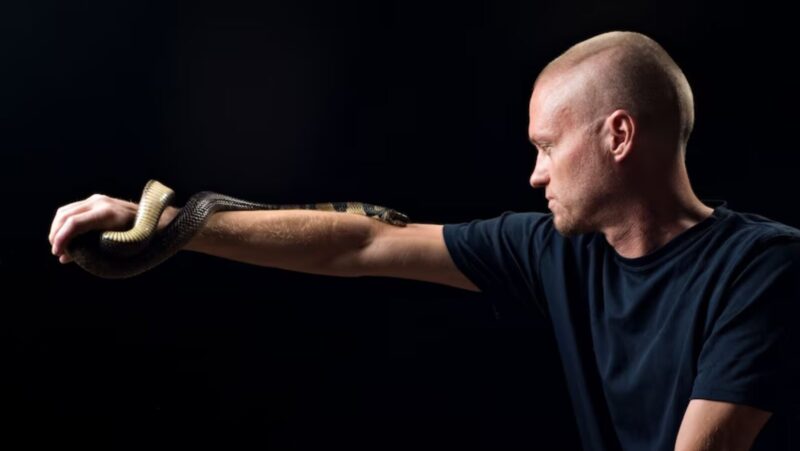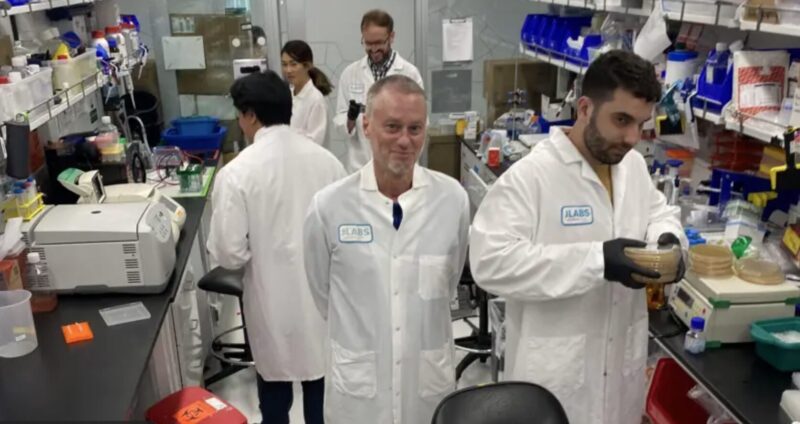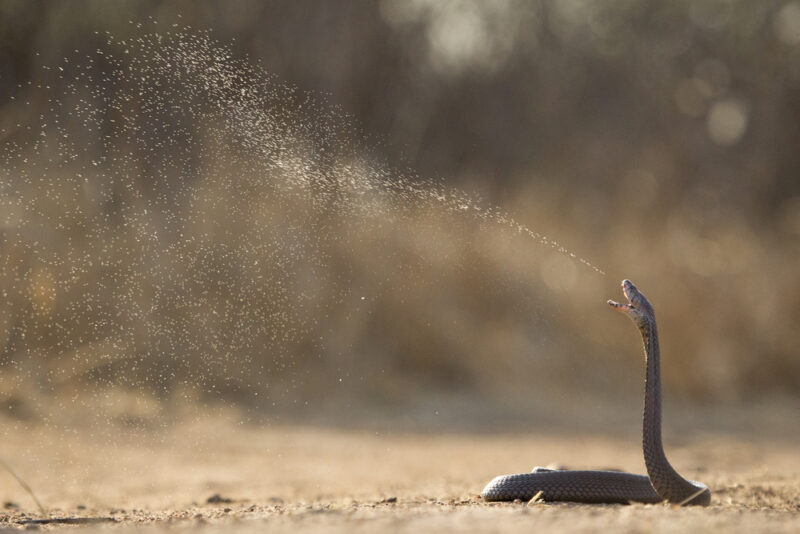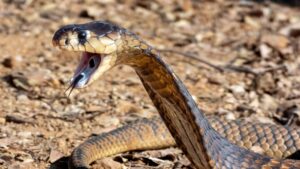A ground-breaking development in snakebite treatment has emerged from two small vials of blood. Specifically, the blood of Tim Friede, a Wisconsin man who has voluntarily injected himself with snake venom and let snakes bite him for the last two decades.
Most people would do anything to avoid a venomous snake bite. But Friede set up a lab in his basement to try and help in the field of antivenom research. He is not a scientist, nor was he affiliated with any research body. Snakes and their bites just piqued his curiosity.
Speaking to The New York Times, he explained that a garter snake bit him when he was five. This harmless interaction triggered his fascination with snakes. “If I only knew back then what was going to happen,” he laughed.

Tim Friede, Photo: Centivax
Early disaster
In 2000, he began exposing himself to venom. He started with scorpions but soon changed to snakes. A year later, he let two cobras bite him. It sent him into a coma, and he woke up four days later in a hospital. His wife was understandably incandescent with rage when she found out what he had done. But so was Friede, for different reasons: He could not believe he had not thought it through properly.
From that point, he started injecting himself with small doses of the venom to build up his immunity. Only then would he allow snakes to bite him. Over the years, he has injected himself with 650 doses of venom and endured more than 200 bites from some of the world’s deadliest snakes.
Throughout this, he emailed multiple scientists to try to get them to study his blood. A few did sample it, but it never led anywhere. Then in 2017, he got a call from Jacob Glanville. An immunologist by trade, Glanville used to work on universal vaccines and wondered if he could apply the same logic to antivenoms. Rather than targeting the part of the venom that makes it unique, universal antivenom would act on the parts that are common to multiple venoms.

Tim Friede. Photo: Jacob Glanville
Can I have your blood, please?
When he read about Friede, he realized the potential. “If anybody in the world has developed these broadly neutralizing antibodies, it’s going to be him,” he thought, so he reached out. “The first call, I was like ‘this might be awkward, but I’d love to get my hands on some of your blood’,” Glanville told the BBC.
It was exactly what a delighted Friede had been waiting for.
“I’m really proud that I can do something in life for humanity, to make a difference for people that are 8,000 miles away, that I’m never going to meet, never going to talk to, never going to see,” he said.
Glanville and biochemist partner Peter Kwong collected two vials of Friede’s blood. Their research focuses on elapids, the family of venomous snakes that includes mambas, cobras, taipans, and coral snakes.
They identified two antibodies capable of neutralizing a broad spectrum of snake venoms. They combined these with varespladib, a molecule that inhibits venom enzymes, then tested this combination on mice exposed to venom. Thirteen mice were fully immune, and the remaining six showed partial protection.
Don’t try this at home
Conventional antivenoms come from the blood of horses or sheep that have been given a specific venom. Typically, they are expensive, have limited regional effectiveness, and may cause severe allergic reactions because the antibodies come from non-human mammals. In contrast, the new antivenom is lab-produced, potentially reducing costs and allergic risks, and offers broader protection.
While Friede’s work is hugely significant, experts caution anyone against replicating his methods. The research team noted that all necessary antibodies have been identified, and no further self-exposure is needed.
This is just the first stage of research. Next, they hope to test their universal antivenom on dogs bitten by snakes at a veterinary clinic in Australia. They would then need to test on larger animals before moving on to humans.





